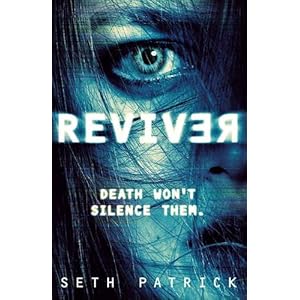A couple of weeks ago I had both the privilege and pleasure of spending a week's work experience at
Pan Macmillan, specifically working within their
Tor Uk genre fiction imprint.
I've always wanted to be an author, for as long as I've been a sentient being at least - but its a long and arduous slog, as I'm sure most people know. So, in the 'real world', as some call it - outside of my dreams, and while I slog away - I've had two career options in mind for after university: Journalism and Publishing.
With regards journalism, I've spent the last two years various section editors at my university's newspaper - I've done proofing, I've done features, and am happy and settled on arts. It interests me, and it provides me with free tickets to all sorts of shit (which is only a positive!) - but it doesn't really
excite me - not in the same way the physical sight, feel, reading of a a book does.
So:
Publishing.
Acquiring the Work Experience:
I was lucky enough to know someone quite high up in publishing at Harper in the US. He knows everyone who is everyone, it seems (in fact, it seems that everyone in publishing knows
everyone else, especially if its their field [genre fiction, women's fiction, crime etc. etc. etc.]). So he hooked me up with the lovely Louis Buckley, editorial assistant at Tor, whome I sent a cheeky e-mail to and arranged a week fitting in with my reading week at university. Both before and since receiving my work experience at Tor UK, I've not received a single positive response regarding any of my work experience/internship applications: Penguin want me to e-mail them near the end of March, and other 'big' publishers have set dates as well. At the moment, I'm using
The Society of Young Publishers (£24 membership fee for a year) to search for internships. I've also splashed out on
The Writer's and Artists Yearbook (£16.99) and am cold-emailing/calling a few select publisher, hunting for placements. But to no avail as yet - I'll keep trying.
The Experience:
I turned up on day 1 with little o no expectations - I wasn't even sure I'd be with Tor. All I knew was that I working with Pan Mac, the overriding name for all fiction imprints at Macmillan. I knew I'd be doing grunt work - easy stuff, stuff that requires little/no training, but I didn't care. I was going to throw my self in, do stuff to the best of my ability, go the extra mile, create a good impression. Hopefully I did so, and, with my cynical hat on, created potential positive for the future.
On arrival, after the usual HR stuff at any work placement (NDA, expenses, introduction, lunch, working hours &c.), I was set about aiding with submissions. Tor recently
started accepting direct submissions which resulted in... well, a lot. Some were excellent. Others not so. So I started through the slush pile, looking to see if there were things the editors may have missed, sending just the one back to be looked at again. I enjoyed it - the 5 chapters I read anyway, and hope that the editors enjoyed it too. It was different, had good voice, good, different SF plot, and excited me. As someone who reads
a lot of genre fiction, I like to think I have decent taste.
That aside, I did other things like collating reviews using Google Alerts, for a central database of positive review quotes, creating a fact sheet for the sales department for a potential acquisition, and collating character info for an online tie in to a soon-to-be published work. On top of that was stuff that seemed dull when given, but with the right attitude can be made to work: the opposite of the online tie in above, taking stuff from an online-tie-in and collating it for potential use in print, and making an itinerary of what books the Tor section of Pan Mac had in the office. Sounds dull? Not really - it makes the office look awesome, and gave me more of an idea as to whom Tor represent, from those I knew they did (China Mieville, Amanda Hocking) to those I didn't but excited me (Peter F. Hamilton, Jay Kristoff) and the odd thing I didn't know existed (Halo tie in books by Greg Bear).

The most interesting part of the whole expereince, though, came from learning. I didn't knwo the extent to which the publishing industry is intratwined & intertwined: agents will have preferred editors, sales and marketing and finance all have a say in acquisitions. The money side was also interesting: just who gets what from a deal, and what author's make in advances. Questions are good. Questions make you seem intelligent and eager, and teach you the ins and outs of the industry. Meetings, more importantly, teach the central process of the publishing industry. From imprint meetings with 8 people to the editorial meeting with 30 to the covers meeting with the art department, each taught me a fascinating part of the publishing industry. And, importantly, made me fall in love with it.
Lou Morgan wrote an interesting piece today
On Editors - and working in editorial gave me an insight into the excellent work they do, both in the editing process and the housework that surrounds it. They seem a bit mental - working evening and weekends, cutting into free time, but the finished product at the end makes it oh-so-worth-it. And besides, mildly mental people are the most interesting after all.






